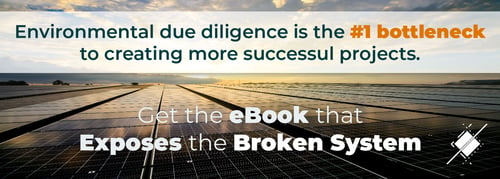
Listen to the audio version
Apparently, $369 billion isn’t enough to buy a fast pass.
Listen, we hate to be the one to say, “we told you so,”….but if the shoe fits…
The "Climate Bill," Otherwise Known as the Inflation Reduction Act
In case you haven’t been keeping score at home, President Joe Biden recently signed the Inflation Reduction Act (IRA) into law after it was passed by the Senate and the House of Representatives on party-line votes. Also dubbed “The Climate Bill,” this law is positioned to be the most impactful piece of legislation for fighting climate change in U.S. history. The act provides funding via extended and enhanced tax credits to produce a drastic increase in solar development and consumer initiatives to increase access to products like heat pumps and electric vehicles.
Last year the “Build Back Better” bill became the talk of the town (or should we say Congress). It would have included historic investments for climate legislation, and other priorities for the Democrats, such as free pre-k and paid family leave.
In a surprising turn of events, receiving bipartisan support was difficult. We’ll give you time to process that. We know that information might be shocking to some as people’s general health and well-being are things everyone seems to always see eye to eye on regardless of political party… Ultimately, with no bipartisan support, moderate Democrat Senators Joe Manchin and Kyrsten Sinema blocked the Build Back Better plan.
After behind-the-scenes bargaining between Senate Majority Leader Schumer and Sen. Joe Manchin, the bill we know today as the Inflation Reduction Act was finalized a year later. Now the country eagerly awaits emission reduction and renewable energy projects to be developed en masse. However, copious tax credits aside, there may be no fast pass to development if environmental permitting has anything to say about it.
storage are about to go through the roof (or should we say on the roof...moving on.)
How the Heck Do Tax Credits Work
Listen, tax law isn’t our thing. We understand the general concepts:
-
Tax credits help make project dreams come true.
-
Taxes pay for public services.
-
If you don't pay taxes, you get jail time.
If you can’t relate to the fear of that last one, enjoy your yacht this weekend, and the rest of us, 99% of Americans, will look forward to the pictures.
Though we are environmental experts and not lawyers, we did some research to help you navigate this whole thing. We learned that different tax credits are available for homeowners, solar panel manufacturers, and renewable energy developers. We also learned that IRS forms just became your new best friend - a true tale of enemies to lovers.
We spell out everything you need to know about the bill and its tax incentives in our eBook. Click to learn more about the Climate Bill, or keep reading- it’s about to get juicy!
Environmental Permitting and the New Climate Policy
The bullet train for clean energy and lessened air pollution this bill aims to be may have one major derailment: the environmental permitting process.
Environmental permitting is a significant part of the development process. However, for such an important system, it’s as broke as a joke, and the joke is on land developers.
The permitting system is comprised of environmental consultants working on billable hours, frustrated developers, and red tape. Environmental due diligence and renewable energy development have been at odds with each other for decades. In a world of high-speed Wi-Fi and minute rice, the permitting system is a telegraph in comparison(to be generous). The current environmental permitting process has the power and long track record of delaying projects. These delays take anywhere from weeks to months, dragging out promised projects. In fact, these same delays are on the horizon for all the sparkly new projects being partially subsidized by the IRA.
Now, I don’t know about you, but if someone said they were giving me all the ingredients to make a delicious sandwich and that I should get excited to have it for dinner, I’d be pretty upset if they forgot to tell me the bread people need six more weeks to make the bread and that dinner is in the far, far future. I’d be hungry, grumpy, and sandwich-less. All around, a bad combo.
That’s what’s happening in the world of renewable energy development- or all land development, to be accurate. No matter how many pieces of climate legislation get passed, solar panels are built, or clean energy technologies leave the science fair- tackling the climate crisis will continue to be a hurdle if we do not tackle the environmental permitting process.
Though the act is a HUGE and EXCITING milestone and should undoubtedly help curb carbon emissions, we can’t help but wonder what extra weight will do to an already overloaded and fracturing system. Whose project timelines and budgets will be sacrificed to tend to others first? Are these American home energy efficiency projections and goals for lowered greenhouse gas emissions realistic when the environmental permitting system is so broken?
The IRA was a win for climate action, health care, and prescription drug costs, but the road to more renewable energy is just the beginning. Developing more projects outside the fossil fuel industry and fixing our broken permitting system sound great in theory. Still, it will take a lot of work beyond the Biden Administration or the government in general. To see these projects efficiently come to life, lawmakers, land developers, environmentalists, and automated due diligence, such as Transect, must work together to shorten project timelines and lessen risk.
Don’t believe us? We kind of wrote the whole book on it. Check out our eBook (below) on the Truth about the Environmental Permitting industry and get back to us.



